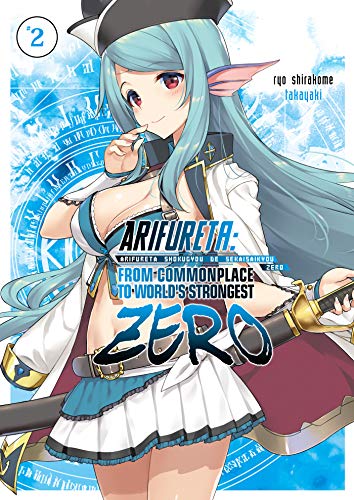By Ryo Shirakome and Takayaki. Released in Japan as “Arifureta Shokugyou de Sekai Saikyou” by Overlap. Released in North America digitally by J-Novel Club. Translated by Ningen.
The last few Arifureta reviews have begun with me discussing some aspect of Hajime’s personality, but for the most part, after realizing he now has a way to return to Japan, Hajime’s character arc seems to be coming to an end. There is discussion here about how he can possibly fit in back home after all the changes he’s gone though, but Hajime’s attitude to this is basically “can’t do anything about it now, so will see what happens when it happens”. There’s also a side story towards the end of the book that shows that he’s not really as changed as everyone may think, as we see much of his core character even as a bullied high school student. Instead of discussing Hajime, I’d like to focus on the two characters who get the most attention during this volume (the first of a two-parter), and that’s Kouki and Shizuka. Who are suffering from the same problem but going in two very different directions.
The function of this final dungeon, aside from the snow and ice and a bunch of bigfoot monsters, is to make those who try to conquer it confront their negative traits. This starts as whispers in the ear, and ends with a full on “my evil twin” confrontation. We don’t actually see Kouki’s battle in this volume, but I’m going to go out on a limb here and say he’s not going to pass. In fact, I’ll even go further: I don’t think Kouki as an antagonist is going to be resolved in the series. I’m not sure it will get to the point where he’s an outright villain like Eri, but Kouki sees the world, and those around him, in black and white, and as long as he keeps doing that he’s never going to accept that Hajime isn’t “bad” in some way. It can be very frustrating to the reader – and indeed the other cast members, all of whom know exactly what his inner turmoil is but refuse to bring it up as they know once they do he’ll snap and that will be it. Expect snapping next book.
As for Shizuku, who is getting yet another picture on the cover, she not only has to confront her repressed love for Hajime, which has been bubbling up for some time, but also her repression of everything else in her life. We see her backstory as a girl who wants to do feminine things but has an amazing talent for kendo, and as a result is slotted in as ‘tomboy’ by almost everyone. Her friendship with Kouki’s who’s more an annoying little brother than anything else, also causes her to be ostracized, and it’s only Kaori who’s able to save her. (This also gives insight as to why she’s so willing to put up with Kaori’s eccentric behavior bordering on stalking towards Hajime – and why she refuses to admit her own feelings.) In the end, Shizuku’s main issue is that she needs to be more selfish. She takes a good first step at the end.
As noted, this turns out to be a two-parter, and the author says he’ll show the other cast members confronting their dark selves, including Kouki. I suspect they’ll conquer the dungeon, but the question is what will they do about the rest of the plot, which takes a back seat here aside from occasional mentions of Eri. The latest volume comes out in Japan next week, so we may need to wait a few months to find out.





